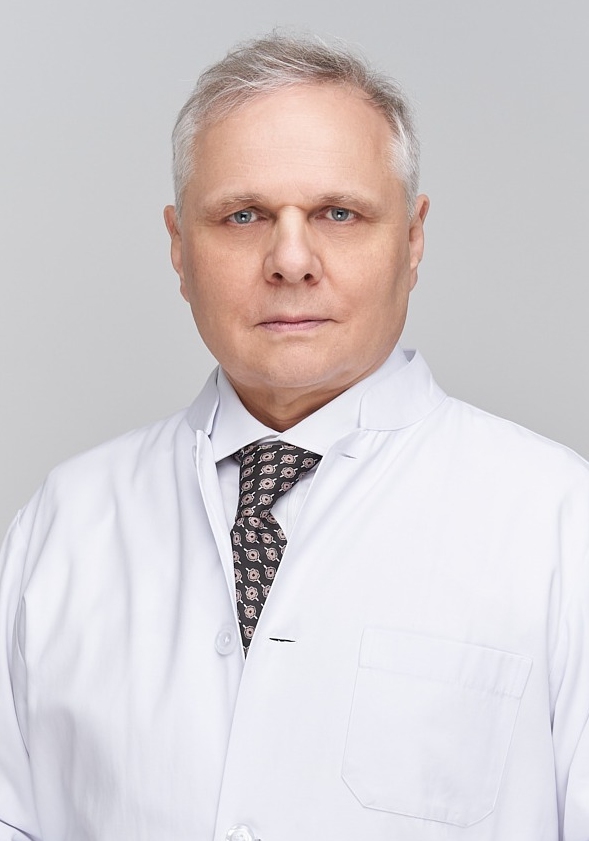
Many people struggling with alcohol addiction who want to quit drinking start looking for medication to help. Ideally, they wish they could just take a pill and be free from alcohol dependence. But it’s not that simple.
There are indeed several medications that can support individuals in their fight against alcohol addiction. However, these are usually prescribed only as part of a professional alcohol withdrawal program. In this article, we explain how such medications can help patients.
The term “alcohol withdrawal medication” refers to drugs that ease the detox process and/or support long-term abstinence. They are also used to help prevent relapse after successful treatment. Alcohol withdrawal typically happens in two stages. The first step is detox, which begins once drinking is stopped. This phase can be dangerous, especially for people who drank heavily every day. That’s why detox should never be done alone—it needs medical supervision.
For Alcohol Withdrawal Treatment Contact:
Call CHMCDifference Between Detox and Rehabilitation
Detox and rehab are not competing approaches—they go hand in hand. In fact, rehabilitation is part of the overall withdrawal process, which ideally includes three phases:
- Detox
- Rehabilitation
- Aftercare
Rehabilitation begins after the physical detox is complete. It focuses on identifying and treating the root causes of addiction and harmful behavioral patterns. The goal is to help the person develop alternative coping strategies and break the mental dependence on alcohol. During this phase, a relapse prevention plan is also created.
Medications may be used during rehabilitation, but only as supportive tools. They can, for example, reduce cravings and help maintain the motivation to stay sober.
Qualified Alcohol Withdrawal Treatment
Many people with alcohol addiction try to stop drinking on their own. They often choose a “cold turkey” approach, quitting alcohol without medical support. But this method is not only dangerous—it’s also ineffective for most people in the long run. The main reason is that it lacks the important rehabilitation component.
Anyone who wants to quit drinking and free themselves from addiction should seek qualified treatment. A professional withdrawal program includes not only physical detox (managing intoxication and withdrawal symptoms) but also addresses psychological, social, and physical factors that contribute to addiction. Dealing with the root causes of the addiction requires a multidisciplinary team of doctors, psychologists, and other therapists.
Alcohol Detoxification
For stopping drinking is essential to get medical help. Trying to quit alone—especially through a cold withdrawal—can have serious consequences. In general, alcohol withdrawal symptoms begin around six hours after the last drink. In severe cases, they can last for several weeks.
The withdrawal symptoms can be so severe that the situation may become life-threatening. In contrast, people who begin therapy under medical supervision have a much higher chance of staying sober after detox. Medications play a crucial role in alcohol detox. They reduce withdrawal symptoms and help prevent dangerous complications such as seizures or delirium tremens.
The Risks of “Cold Turkey” Detox
In most cases, suddenly stopping alcohol without medical and medication support makes the problem worse. Cold turkey withdrawal often leads to intense physical and psychological symptoms. These can include seizures or delirium with hallucinations—both potentially fatal.
Because of these severe withdrawal symptoms, many people end up quitting the detox early. This often leaves them with feelings of failure, weakness, and low self-discipline. Each failed attempt makes it even harder to try again, and quitting alcohol on one’s own becomes nearly impossible.
Physical Symptoms During Alcohol Detox
The range of physical symptoms in people who stop drinking varies widely. Some experience mild signs, while others face serious, even life-threatening conditions. These symptoms may include:
- Flushed face
- Diarrhea
- Nausea
- Excessive sweating
- Muscle tremors
- Sleep disturbances
- Fever
- Rapid heartbeat
- Seizures
- Trouble speaking or finding words
- High blood pressure
- Low blood sugar
- Alcohol withdrawal delirium, also known as delirium tremens
Psychological Symptoms During Alcohol Detox
- Inner restlessness
- Confusion about time, place, or identity
- Hallucinations—touch, sound, or visual (often described as seeing “white mice”)
- Anxiety
- Depression
Medications for Alcohol Addiction in Clinical Settings
Effective medications for alcohol addiction are used during inpatient withdrawal treatment to help maintain abstinence and prevent relapse. In some cases, these medications are prescribed even before a person starts inpatient therapy, to help reduce alcohol consumption gradually.
Medications Before Detox
Nalmefene is a drug designed to help people cut down on drinking even before treatment officially begins. The first step toward recovery should always be a visit to an experienced doctor. The doctor can explain safe options for reducing alcohol use—ideally with minimal side effects or health risks.
Medications for Alcohol Detox
The most important drugs used in alcohol addiction treatment are those that actively support the withdrawal process. These medications mainly help relieve distressing symptoms or prevent severe withdrawal reactions. All of them require a prescription and are usually given as part of a medically supervised detox program. Common medications used to manage withdrawal symptoms include:
Clomethiazole
Clomethiazole, also known by the brand name Distraneurin, is often used as an emergency treatment for withdrawal symptoms. It has a calming and sedative effect, slightly lowers the risk of seizures, and eases agitation, restlessness, and delirium. It also helps with severe sleep disturbances and many other symptoms linked to stopping alcohol misuse.
However, because Clomethiazole carries a relatively high risk of dependency, treatment with this medication is typically limited to 10 to 14 days and must be gradually tapered off under medical supervision. Due to possible side effects, constant monitoring of vital functions—especially breathing and circulation—is necessary during treatment.
Benzodiazepines
Benzodiazepines are among the most commonly used medications for managing harmful alcohol use. They act on the central nervous system in a similar way as alcohol and have a calming effect. Medications like Diazepam are often prescribed for psychological withdrawal symptoms. They’re also used to treat delirium and seizures, sometimes in combination with other drugs such as Haloperidol.
Since discontinuation of longer use of benzodiazepines in alcohol detox also can leadt to withdrawal,their dose must always be tapered off gradually.
Other Medications Used in Alcohol Withdrawal
The exact medications prescribed depend on how severe the symptoms are and what risks are involved. Drugs used mostly in clinical settings during detox include:
- Anticonvulsants – to prevent seizures
- Antipsychotics – to treat hallucinations or delusions
- Beta-blockers – often used alongside benzodiazepines or Clomethiazole
- Clonidine – also used as a supplement to benzodiazepines or Clomethiazole
- Tiapridex – used in combination with anticonvulsants
- Thiamine (Vitamin B1) – to prevent Wernicke’s encephalopathy, a serious brain disorder caused by vitamin deficiency in chronic alcohol users
Medications that Reduce Cravings
Craving is one of the biggest challenges for people with alcohol addiction. The powerful urge to drink often comes from long-term alcohol use, which changes the brain and creates a “memory of addiction.” This memory fuels the desire to drink and is often the reason people relapse. Fortunately, there are now medications that can help reduce or block this craving:
Nalmefene
Nalmefene is aimed at people who have harmful drinking habits or are already addicted and struggle to stay sober. It is an opioid antagonist that blocks the brain’s reward system. As a result, alcohol no longer creates feelings of pleasure or euphoria. Nalmefene is mainly used to reduce the amount of alcohol consumed. For best results, it should be taken one to two hours before situations where drinking might occur.
Naltrexone
Naltrexone is another opioid antagonist that also blocks alcohol’s effects on the brain’s reward center. It is usually prescribed after detox, especially when abstinence is not yet stable. The goal is to prevent a small slip from turning into a full relapse. Drinking alcohol while on Naltrexone doesn’t activate the brain’s pleasure response. Like Nalmefene, it can also help reduce alcohol cravings.
Acamprosate
Acamprosate is considered a classic anti-craving medication. It is meant to prevent relapse after detox by reducing the internal pressure or tension that leads to drinking (“negative craving”). However, it only works if the person is already abstinent and has been taking the medication for at least five days.
Baclofen
Baclofen is officially approved for treating alcohol addiction in France. Originally developed as a muscle relaxant, Baclofen has shown some promise in addiction treatment. However, the evidence from clinical studies is still limited. It is sometimes used off-label in very severe cases, such as when the patient already has alcohol-related liver cirrhosis.
Dosage and Use of Withdrawal Medications
These medications are prescribed based on the patient’s individual condition. The dosage is adjusted depending on how the person responds and how serious their symptoms are. Doctors also take into account other medical conditions—such as diabetes, heart disease, COPD, or rheumatic illnesses—as well as possible interactions with other medications the patient is taking.
How Medications for Alcohol Addiction Work
Alcohol affects the mind and consciousness by altering neurotransmitter activity in the brain. It stimulates the release of certain chemical messengers and increases dopamine levels, activating the brain’s reward system. As a result, drinking alcohol makes people feel relaxed, euphoric, and happy. At the same time, the brain creates a “memory of addiction,” which increases the craving for more alcohol with each drink. Meanwhile, the body becomes used to the alcohol. If the usual dose is missing, withdrawal symptoms begin.
Blocking the Reward System
Most medications for alcohol addiction target the psychological side of dependence. They act on the brain’s reward system, breaking the link between drinking and feeling pleasure. This weakens the positive reinforcement effect of alcohol. As a result, people may lose the motivation to drink or reduce their alcohol intake.
Some medications are known as anti-craving agents. They help lower the urge to drink and make it easier to stay sober.
Causing Adverse Effects to Alcohol
A third group of medications follows the idea of aversion therapy. These drugs make the body react strongly and unpleasantly to alcohol. Even small amounts can cause nausea or vomiting. This method is controversial. Drugs like Disulfiram, which work in this way, are now rarely used in Germany and only in specialized clinics.
Medications for Alcohol Addiction. Summary
Many people with alcohol addiction are aware of their condition and want to quit. However, fear of withdrawal often stops them. That’s why many hope for a simple pill to overcome their addiction. But such a cure doesn’t exist.
Alcohol detox can be dangerous, especially for those who drink heavily every day. That’s why quitting should never be done alone. Detox must be supervised by medical professionals—either emergency physicians or psychiatrists specially trained in alcohol withdrawal treatment.
While medications can support recovery, there is no magic pill that makes addiction disappear overnight.
Sakina Rehabilitation Center

The Rehabilitation Center Sakina offers a comprehensive range of services, including individual and group sessions, psychoeducation on addiction and mental health, Cognitive Behavioral Therapy (CBT), relapse prevention strategies, family support, and holistic approaches such as mindfulness and physical fitness.
The aftercare planning and support systems ensure continuity of care. Additionally, Sakina provides customized programs to meet individual needs, including dual-diagnosis support for co-occurring mental health conditions such as addiction, depression, and anxiety.


